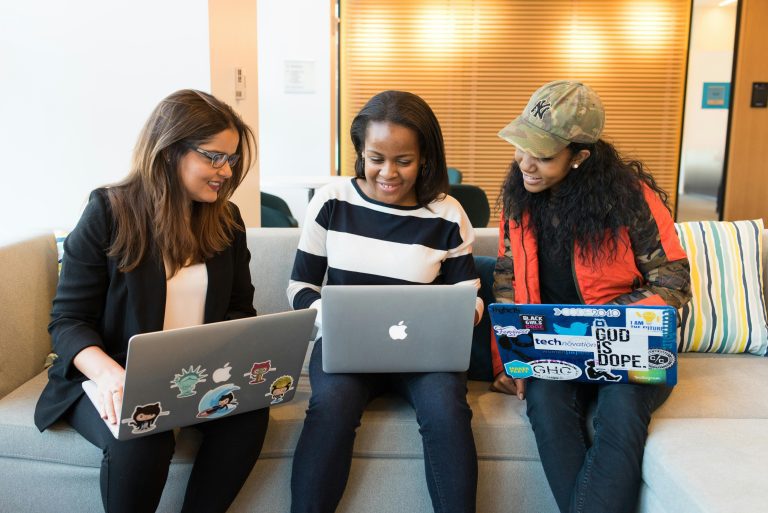“Employees are our most important asset,” or, “We want to be the employer of choice,” are the common refrains used by managers but, underneath these expressions, workers are simply regarded as costs that must be managed to the bone. According to a study conducted by the South African Depression and Anxiety Group (SADAG) in partnership with Hexor and Lundbeck, one in four workers in the country is suffering from depression.
Another research by the London School of Economics and Political Science shows that, while some managers will go to great lengths to try and squeeze out every cent they put in their employees; they lose more in the process. The study indicates that employees take more than 18 days per year off work because of depression. This in turn costs the South African economy an average of more than R200 billion, which translates into 5.7 percent of the country’s GDP.
Well, truth is for many companies, people are the only source of their competitive advantage but, sadly, they fail to invest in them for a variety of reasons. Some of these reasons range from a lack of resources to concerns that they might leave their current company to join another. There’s no question that productivity often takes a knock as soon as workers become demotivated and, with that, the quality of work also drops. Measuring the bottom-line contributions of investments in human capital management has been something that employers have been battling to work out. According to LinkedIn’s 2019 Workforce Learning Report, 94 percent of employees say that they would stay at a company longer if it simply invested in helping them learn.
As Covid–19 continues to disrupt how we live, work and play, Human Resource Practitioners have had to contend with many challenges of the new normal. Some of the challenges include helping employees cope with working remotely, maintaining a seamless communication and flow of information among staff members, increased screen time as a result of online meetings, and many others.
We had to learn and embrace these changes in dynamics earlier on at Sasria because our work is centred around people. We have put our money where our mouth is. Sasria has a very young workforce of highly agile and motivated individuals. We offer meaningful work, competitive remuneration and benefits but, over and above that, our Employee Value Proposition is focused on providing professional learning and development opportunities to our staff. Employee wellness is also a big part of our value proposition and this had to be tested in the time of Covid-19.
During the lockdown regulations, while we were all working from home, Sasria ensured that employee safety came first. All employees were sent to work from home, the use of public transport was discouraged, and buses were to be made available if the need arose, we ensured that employees were given support through LinkedIn Learning material and training. We also created focus group sessions to coach and help each other and we had Café sessions with the Managing Director to check in with employees, gauge their mood and address some of their underlying concerns. Employees had access to a 24-hour professional counsellor for themselves or family members.
This framework, which also comes highly recommended from a report by the Harvard Medical School – Mental health problems in the workplace – provides practical benefits of improving organisational performance. More broadly, it helps organisations in appreciating the long-term value of investment in human capital as opposed to the narrow, near ended and sometimes self-serving goals.
According to a study done by LinkedIn, the interest in learning and development is particularly strong among younger workers, with many saying learning is the number one thing that makes them happy at work. This exercise doesn’t have to cost an arm and a leg, unless of course your company can afford to grow new sets of limbs. In-house training goes a long way and leaves workers feeling valued and opens up the prospect of growth.
With Covid-19 having already wreaked havoc to the country’s economy, it could take a while for companies to get back on their feet and hopefully start employing more people to reduce the burden on the current staff supplement. According to the Reserve Bank governor Lesetja Kganyago, the South African Economy is set to contract by more than 7% this year, with a forecasted two percent growth from next year.
This, compounded by anxieties of living and working during the pandemic, has made the overall life of a worker, overly strenuous. These are realities that employers ought to be cognisant about in order to help guide an approach in staff support. Which brings us to an important aspect that leaders should start exploring – Employee Happiness Index. Employee happiness doesn’t only boost productivity, but it also brings company loyalty and reduces workplace stress. With the average person spending 90,000 hours at work in their lifetime, happiness in the world of work has never been more important. If companies started to measure the happiness index, they would start to see the impact of happiness on productivity, turnover and absenteeism. An international consulting company analysed all Fortune 100 companies based on what they’re doing to make their employees happy.
The happiness index ranks the Fortune 100 companies on various factors such as work-life balance, new Glassdoor ratings, performance bonuses, diversity, and more, to determine the best companies in the world to work for, based on how happy they make their employees. Companies such as Freddie Mac, Dell Technologies, Cisco Systems and Energy Transfer were among the top 5. This is particularly important during this time as employees are not in plain sight – we have to be creative about how we improve performance, engagement and wellness.
With the country now on level 1 of lockdown, signalling the return of life to normality, companies are now working on plans to bring workers back into the office space. While others would not be happy about the idea of commuting back to work especially using public transport, others would welcome this especially given the challenges of working at home. Sasria, like some, has developed a return to work plan, putting the emphasis on the safety of workers.
Not all workers will be returning to the work office, owing to strict Covid-19 guidelines. That is why we have ensured that those working from their homes, are provided with all the necessary equipment and support to ensure that they are coping well. Our return to work plan will kick in from April next year, to ensure that people are not rushed back and placed in harm’s way. We have learnt from the experiences of others and we will do our best to provide a conducive work environment both for those who will be working from home and those who are making their way back.
While development and wellness are critical, the moral of the story is that leaders and companies should listen to employees and prioritise that which will make them happy at work.
Sasria is an authorised FSP registered under license number 39117.
Tshepiso Chocho is the Executive of People Management at Sasria SOC Ltd.


























